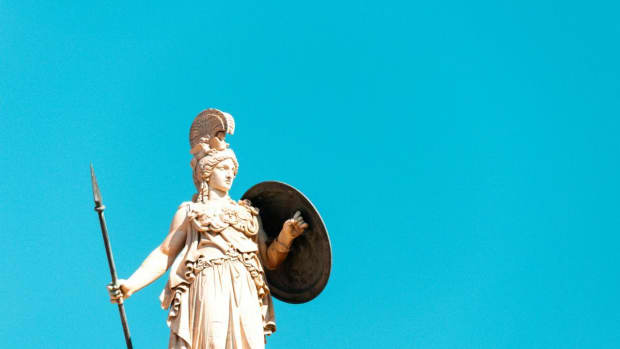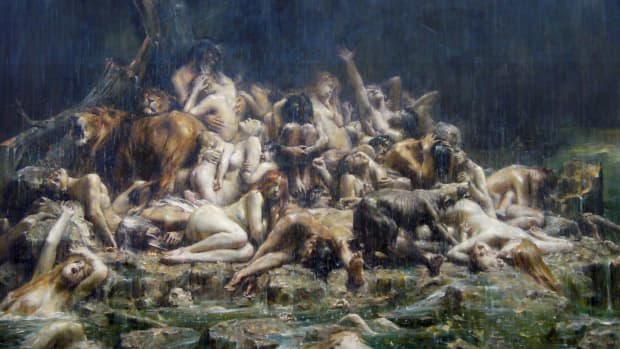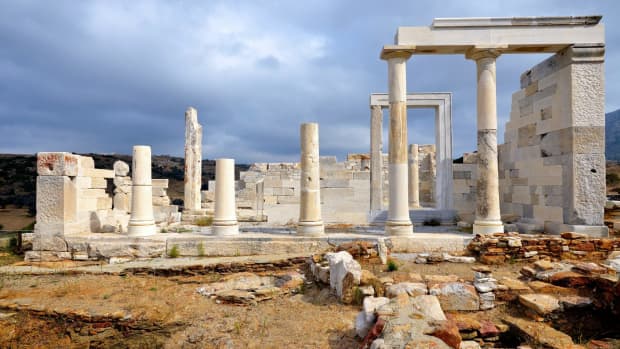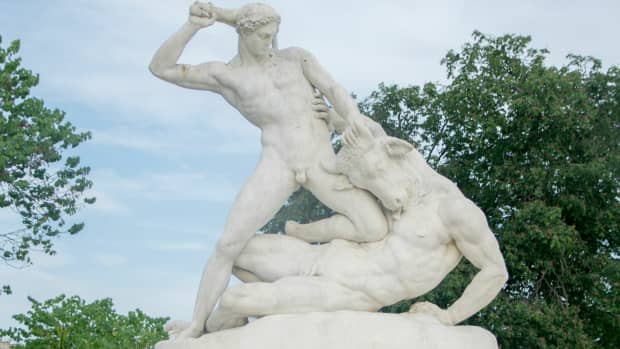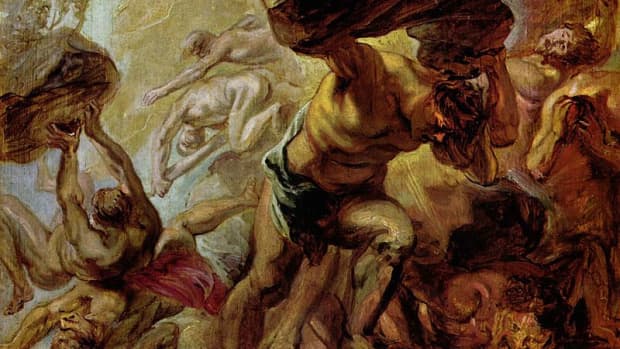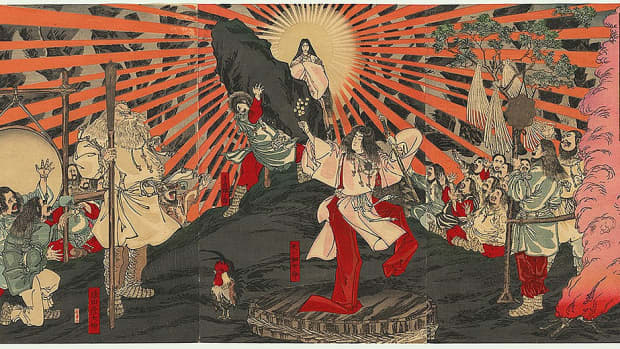Pallas Athene: The Greek Goddess of Wisdom, Crafts and War
Who Was the Greek Goddess of Wisdom, War, and Crafts?
Athene, also known as Minerva by the Romans, was the ancient Greek goddess of wisdom, crafts, weaving, war, and the cultivation of the olive tree. She was particularly worshipped in Athens, which derived its name from that of the goddess.
A virgin goddess like Artemis, Athene is an intriguing blend of characteristics traditionally associated with both men and women. She is a warrior who is usually shown wearing full armour including a distinctive crested helmet. The patron of warfare and statecraft, a friend and adviser to her protégés in battle and debate, she can seem a very typically masculine character; however, she is also the patron of weaving and other handicrafts carried out by women. Her modesty and chastity, while emphasising her androgynous aspect, also sets her apart from any male god in the Greek Pantheon.
The Birth of Athene
Zeus became king of the Greek gods of Olympus after he had defeated his father, Kronos. He was warned that the son of the Goddess Metis, whose name means thought, or wise counsel, would one day overthrow Zeus himself. Zeus seduced Metis and then seized her and swallowed her whole. It was said that she continued to offer him wise counsel from within his belly. Sometime after this, Zeus experienced a terrible pain in his head and, eventually, Prometheus (or Hephaistos according to some versions) cracked Zeus’ skull open with an axe and Athene sprang out, fully armed and shouting her war cry.
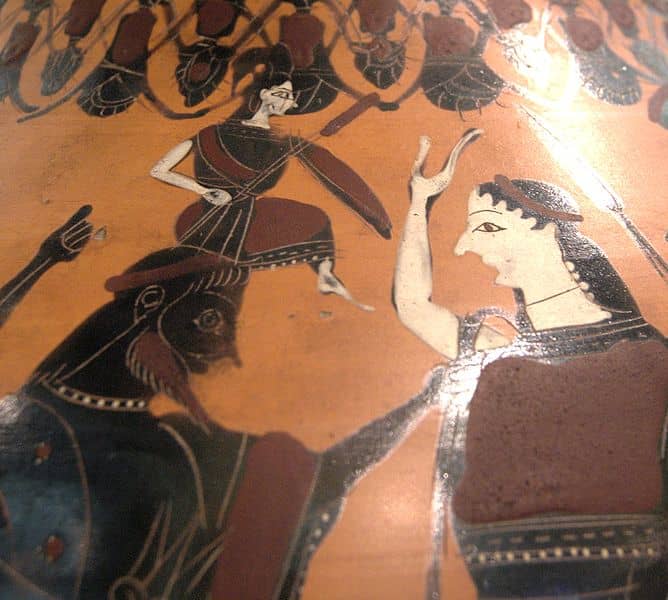
Athene emerging from the head of Zeus. Eileithyia, goddess of childbirth, stands on the right, ready to assist.
The Contest With Poseidon
The Gods of Olympus each decided to lay claim to cities throughout Greece, where they would be specially honoured and worshipped. Athene and Poseidon, god of the sea competed to see who should become the patron of Athens. Poseidon stood on top of the Acropolis and struck the ground with his trident, causing a stream of seawater to well up. Athene then struck the ground with her spear and an olive tree grew from the ground. By the vote of the gods, Athene was voted patron of Athens, which was then called after her.
The Fatal Pride of Arachne
The ancient Greeks were very conscious of the dangers of excessive pride and a lack of humility, and they have a number of myths about mortals who made the fatal mistake of claiming to be superior in some respect to the gods. Arachne was a girl whose skill in weaving was remarkable and she produced work of great beauty, admired by all. She became so proud that she boasted that she was better at weaving than Athene herself. Wanting to give her a chance to repent of her foolishness, Athene appeared before Arachne in the guise of an old woman who warned her against making such statements. Arachne was cheeky and unrepentant and her fate was sealed. Athene appeared before Arachne in all her glory and challenged her to a weaving contest.
Undismayed, Arachne agreed and the two of them set up their looms and set to work in tense silence. According to the Roman poet Ovid, Athene worked on designs showing the fate of mortals who angered the gods, while Arachne provocatively showed the gods engaged in some of their less dignified and edifying adventures. When Athene came to inspect Arachne’s work, she could find no flaw in it. Enraged, she ripped the tapestry to shreds and struck Arachne about the head with her shuttle. In terror and anguish, the girl placed a noose around her neck to hang herself. Relenting only somewhat, Athene turned her into a spider and she continues to hang in the corner, weaving beautiful webs.
Athene and Odysseus
As the daughter of Good Counsel (Metis), Athene is a great friend to many heroes, often described as turning up to offer help and advice in difficult situations. She was a particular friend to Odysseus, King of Ithaca who was known as ‘polymetis’ - of many wiles or tricks. As a hero who preferred using cunning and deception to force, he had a special affinity with the Goddess. Athene assisted with the construction of the Wooden Horse, Odysseus’ ruse by which the Trojan War was finally won by the Greeks. In Homer’s Odyssey, Athene not only inspires Odysseus but plays an active role in helping him return home and regain his wife Penelope and his kingdom.
Comments
SarahLMaguire (author) from UK on June 18, 2013:
Thanks! That's a really interesting point about the connection between myth and landscape. This myth in particular is all about the Athenians' relation to their environment, with on the one side the olive tree on which their civilisation depended and on the other the barren and dangerous sea.
Mel Jay from Australia on June 18, 2013:
Another enjoyable read. Its mind-boggling how the ancient Greeks ever came up with such odd twists and turns. But then again, Greece is such a dramatic landscape, I wonder if there is a relationship between geography and the type of creativity that characterises a culture? Just me musing, anyway, thumps up for quality content - Cheers, Mel
SarahLMaguire (author) from UK on July 07, 2012:
Thanks, glad you found it useful.
Will Farrar from South Carolina on July 07, 2012:
Very informative






